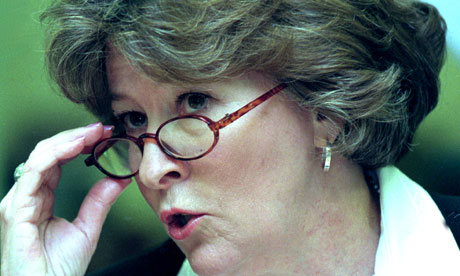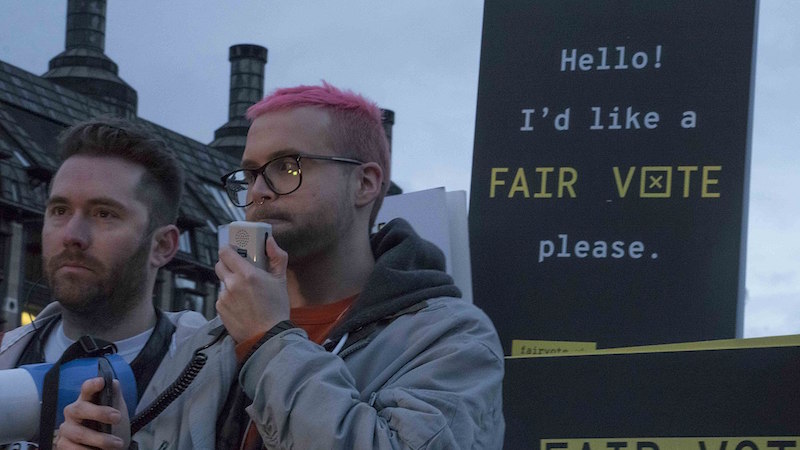In 2013, during the International Crisis Group’s Global Briefing, Louise Arbour gave a powerful critique and assessment of the existing doctrines and frameworks for promoting international justice and humanitarian protection, specifically the International Criminal Court (ICC) and the Responsibility to Protect (R2P) doctrine. Arbour was a former Chief Prosecutor of the International Criminal Tribunal for Rwanda and the International Criminal Tribunal for the former Yugoslavia, a former Justice of the Supreme Court of Canada, and a former United Nations High Commissioner for Human Rights.
More recently, Arbour took part in a Globe and Mail interview with Doug Saunders in which she explained her views further. For Arbour, there has been a shift in international relations from state centric goals towards humanitarian goals. These humanitarian goals have been undertaken through institutions, coalitions and systems of rules developed throughout the 21st century, including the ICC and R2P. However, it has become clear to her that it is difficult to impose human rights laws that have been developed over many years in states that are still developing. Arbour has recognized the importance of rethinking how these developed states involve themselves and intervene in developing states in a way that does not become the wealthy preaching values to the poor. Arbour explains this as “a total disconnect” between these Western states and the rest of the world. These realizations come from an individual who has been deeply involved in the creation and establishment of these institutions and doctrines.
Through her experience on the ICTY, Arbour explains that the key problem to this system is the interconnectedness of public international law and justice to the peace process in many conflict areas. “The initiation and unfolding of criminal prosecutions can complicate if not impede peace processes.”
According to Arbour, it is crucial that the international community begin to acknowledge the shortcomings of these policies and initiatives before moving forward. The goals and challenges of international justice and conflict resolution are not in vain. However, Arbour believes in an approach focused on, what she calls, “political empathy.” It means to attempt to understand, from the outside, before acting and intervening inside these states.
Many others have responded to this interview and to Arbour’s beliefs and thoughts on these issues. Lysiane Gagnon, a Canadian journalist for the Globe and Mail, has agreed with Arbour stating that internationalism and intervention since the Cold War has led to this “confusion or chaos.” In regards to R2P, Gagnon notes its failures during the Libyan Civil War in 2011. The NATO military intervention helped to overthrow the Gadhafi regime. However, this led to instability causing another civil war beginning in 2014. The key problem in these situations is conflicting circumstances, as Western legal values are put against Third World war criminals. Nevertheless, for Gagnon it is not the universality of these values, but the need for understanding and perspective in implementing them that could aid in these situations, as Arbour argues for as well.
In contrast, Lloyd Axworthy, the former foreign minister of Canada, describes Arbour’s analysis as “ill-founded.” For Axworthy, the ICC and R2P doctrine are important and innovative international initiatives, and the difficulty in creating and establishing this system to protect individuals from crimes against humanity should not be “replaced” by empathy, as Arbour suggests. By replacing these laws and norms for a “feeling,” the international legal and judicial system will be damaged. Axworthy cites the successes of the R2P doctrine, specifically in Mali. Though he notes that the failures of R2P have been significantly affected by circumstantial causes, as in Syria and Libya. These circumstantial causes include current political leaders, economic instability, and a lack of international consensus. Axworthy concludes by stating that a change should come through the improvement of the implementation of these doctrines, and not from a “feeling.”
Louise Fréchette, a former deputy secretary general of the UN, has also agreed with Arbour’s critique and assessment of 21st century public international law and justice. Fréchette describes R2P as a “one way street” and “double standard” for powerful developed states. While most international interventions have been motivated by human protection and security, they have also been driven by national security concerns. For Fréchette, the ICC and R2P are “manifestations” of the West’s ability to promote human rights, democracy, and security since the end of the Cold War. Fréchette notes that for these systems to be truly useful change will come by listening and learning “from people who do not share our past and look at the future through different lenses.” Therefore, for Fréchette and Arbour, it is crucial for the international community to begin to constructively assess and critique international relations and law over the past twenty-five years in order to move forward and develop.
To watch Louise Arbour’s speech “Doctrines Derailed?: Internationalism’s Uncertain Future” from the International Crisis Group’s Global Briefing in 2013, see link below:




